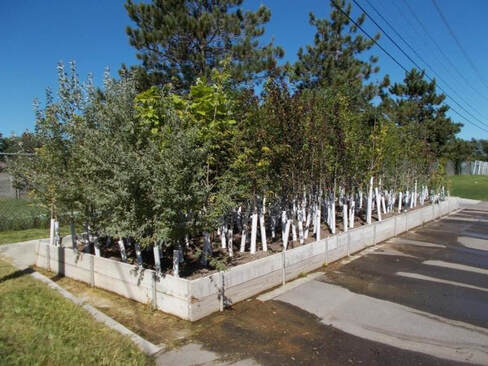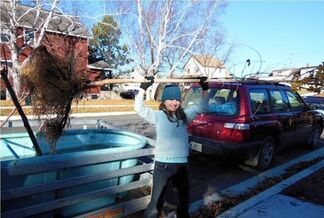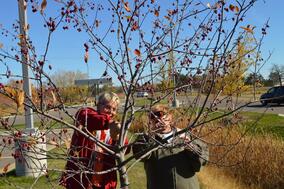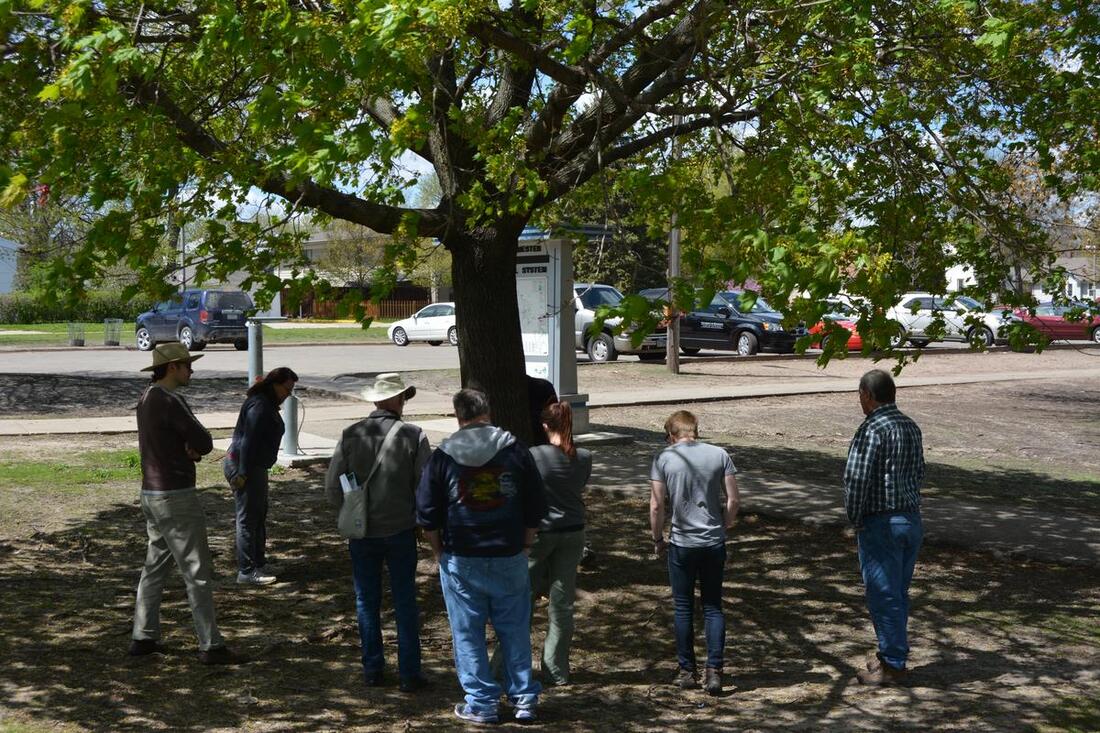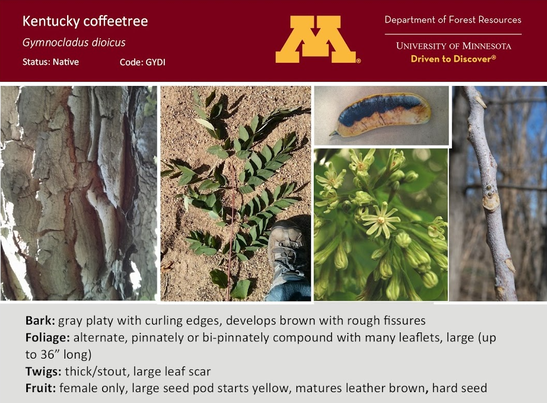CONTENTS
online self-paced tree inspector Recertification course Available
A Guide to the Construction and Management of Community Gravel Beds
Minnesota Tree Care Advocate: Engaging Volunteers in Your Community
New Fact sheets and Tree ID Resources from the UMN UFOR Lab
2021 MnSTAC Virtual Forum Recordings
Online tree inspector Recertification course
Recertify Online via a Self-paced course
Fee: $50 / participant
About: Do you still need continuing education credits before the end of 2021? This course will cover full recertification for MN Certified Tree Inspectors for 2021. The course is self-paced and can be completed anytime between the course opening and Dec. 31, 2021. The course will take approximately six hours to complete.
Topics Covered in this Course:
Registration Portal: https://learning.umn.edu/search/publicCourseSearchDetails.do?method=load&courseId=30886879
About: Do you still need continuing education credits before the end of 2021? This course will cover full recertification for MN Certified Tree Inspectors for 2021. The course is self-paced and can be completed anytime between the course opening and Dec. 31, 2021. The course will take approximately six hours to complete.
Topics Covered in this Course:
- Urban Forestry and Arboriculture
- Tree Risk Assessments
- Engineered Root Spaces
- Pruning Standards and Tree Response
- Nursery Production Methods for Healthy Long-Lived Trees
- MN Forest Insect Pests
- Community Forestry Corps Program
Registration Portal: https://learning.umn.edu/search/publicCourseSearchDetails.do?method=load&courseId=30886879
A Guide to the Construction and Management of Community Gravel Beds
|
|
A new guide is available for free download on the construction and management of community gravel beds from the University of Minnesota Urban Forestry Outreach and Research Lab. Meant to be an exhaustive guide, you will find information on site selection, gravel bed design and construction tips, tree species suitability, and more. If you are considering to build a new gravel bed in your community, or are planning on a redesign of existing gravel beds, there is surely something for you to discover in this guide.
|
Find this new guide and more resources on gravel beds at https://trees.umn.edu/outreach/gravel-beds
Minnesota Tree Care Advocate:
Engaging Volunteers in Your Community
Are you interested in engaging volunteers with your community forestry program and looking for a way to get started? The University of Minnesota Tree Care Advocate Program is an umbrella program that houses three main volunteer programs: Tree Care Advisor, Citizen Pruner, and Tree Steward. These programs vary in the type of education received, training length requirements, if they are individual or community-based programs, and education and volunteer hour requirements after the initial training.
Learn more about these programs and how you can collaborate with University of Minnesota educators to bring these opportunities to environmentally minded volunteers in your communities by vising the Minnesota Tree Care Advocate website.
Learn more about these programs and how you can collaborate with University of Minnesota educators to bring these opportunities to environmentally minded volunteers in your communities by vising the Minnesota Tree Care Advocate website.
New Fact Sheets and Tree ID Resources from the UMN Urban Forestry Lab (UFOR)
|
The University of Minnesota Urban Forestry Research and Outreach Lab has newly updated free educational resources available on their lab website. Download, print, send, and share with your fellow employees or other folks in your community.
You can find short informative fact sheets on many important topics including Tree Care and Maintenance, Pests and Pathogens, and Tree Selection. Visit the UFOR Fact Sheet page to see what is available. For those looking for succinct Tree ID resources, UFOR has a set of Tree ID cards. These can be viewed online individually, as a set, and downloaded for printing. Visit the UFOR Tree Identification page to learn more. |
2021 Virtual MnSTAC Forum Recordings
Each month, the Minnesota Shade Tree Advisory Committee (MnSTAC) in collaboration with the University of Minnesota Urban Forestry Research and Outreach (UFor) lab hosts a monthly forum on topics of interest to the MN urban forestry community. Below you can find the most recent recordings of the 2021 forum series to date since the last TreeIQ edition. To stay current with upcoming forums and other community forestry news, please visit www.mnstac.org and subscribe to the weekly newsletter.
September
A View from the Minnesota Woods
In a bit of a departure from our typical urban forest focus, this month UMN Extension Specialist Eli Sagor will discuss trends and issues in Minnesota's rural woods and what foresters are doing about them: Climate adaptation, carbon management, fire, forest health, and more. Some of the challenges and solutions for rural and urban forests are shared, others are quite different. In either case, there's much to learn from each other. We'll also discuss the service gap at the wildland-urban interface and opportunities to fill it.
Speaker: Eli Sagor, Extension Specialist, University of Minnesota
A View from the Minnesota Woods
In a bit of a departure from our typical urban forest focus, this month UMN Extension Specialist Eli Sagor will discuss trends and issues in Minnesota's rural woods and what foresters are doing about them: Climate adaptation, carbon management, fire, forest health, and more. Some of the challenges and solutions for rural and urban forests are shared, others are quite different. In either case, there's much to learn from each other. We'll also discuss the service gap at the wildland-urban interface and opportunities to fill it.
Speaker: Eli Sagor, Extension Specialist, University of Minnesota
October
Treatment Timings for Disease and Insects
Timing treatments to control pests and diseases of trees can be a challenge for the arborist. The science of Integrated Pest Management offers some tools to make this process easier and more reliable. Kent Honl of Rainbow Tree Company will show how to apply the concepts of IPM to treatment timing, highlighting growing degree days, monitoring strategies, and categorizing pests and diseases to create treatment protocols. This application can result in more effective treatments, less off-target damage to the environment, and happier clients.
Speaker: Kent Honl, Rainbow Tree Company
Treatment Timings for Disease and Insects
Timing treatments to control pests and diseases of trees can be a challenge for the arborist. The science of Integrated Pest Management offers some tools to make this process easier and more reliable. Kent Honl of Rainbow Tree Company will show how to apply the concepts of IPM to treatment timing, highlighting growing degree days, monitoring strategies, and categorizing pests and diseases to create treatment protocols. This application can result in more effective treatments, less off-target damage to the environment, and happier clients.
Speaker: Kent Honl, Rainbow Tree Company
This publication made possible through a grant from the Minnesota Department of Natural Resources and the USDA Forest Service. This institution is an equal opportunity provider.
In accordance with Federal law and U.S. Department of Agriculture (USDA) civil rights regulations and policies, this institution is prohibited from discriminating on the basis of race, color, national origin, sex, age, disability, and reprisal or retaliation for prior civil rights activity. (Not all prohibited bases apply to all programs.)
Persons with disabilities who require alternative means of communication for program information (e.g., Braille, large print, audiotape, American Sign Language, etc.) should contact the responsible State or local Agency that administers the program or USDA’s TARGET Center at (202) 720-2600 (voice and TTY) or contact USDA through the Federal Relay Service at (800) 877-8339. Additionally, program information is also available in languages other than English.
To file a complaint alleging discrimination, complete the USDA Program Discrimination Complaint Form, AD-3027, found online at http://www.ascr.usda.gov/complaint_filing_cust.html , or at any USDA office or write a letter addressed to USDA and provided in the letter all of the information requested in the form. To request a copy of the complaint form, call (866) 632-9992. Submit your completed form or letter to USDA by: (1) mail: U.S. Department of Agriculture, Office of the Assistant Secretary for Civil Rights, 1400 Independence Avenue, SW, Washington, D.C. 20250- 9410; (2) fax: (202) 690-7442; or (3) email: program. [email protected].
This institution is an equal opportunity provider.
In accordance with Federal law and U.S. Department of Agriculture (USDA) civil rights regulations and policies, this institution is prohibited from discriminating on the basis of race, color, national origin, sex, age, disability, and reprisal or retaliation for prior civil rights activity. (Not all prohibited bases apply to all programs.)
Persons with disabilities who require alternative means of communication for program information (e.g., Braille, large print, audiotape, American Sign Language, etc.) should contact the responsible State or local Agency that administers the program or USDA’s TARGET Center at (202) 720-2600 (voice and TTY) or contact USDA through the Federal Relay Service at (800) 877-8339. Additionally, program information is also available in languages other than English.
To file a complaint alleging discrimination, complete the USDA Program Discrimination Complaint Form, AD-3027, found online at http://www.ascr.usda.gov/complaint_filing_cust.html , or at any USDA office or write a letter addressed to USDA and provided in the letter all of the information requested in the form. To request a copy of the complaint form, call (866) 632-9992. Submit your completed form or letter to USDA by: (1) mail: U.S. Department of Agriculture, Office of the Assistant Secretary for Civil Rights, 1400 Independence Avenue, SW, Washington, D.C. 20250- 9410; (2) fax: (202) 690-7442; or (3) email: program. [email protected].
This institution is an equal opportunity provider.
